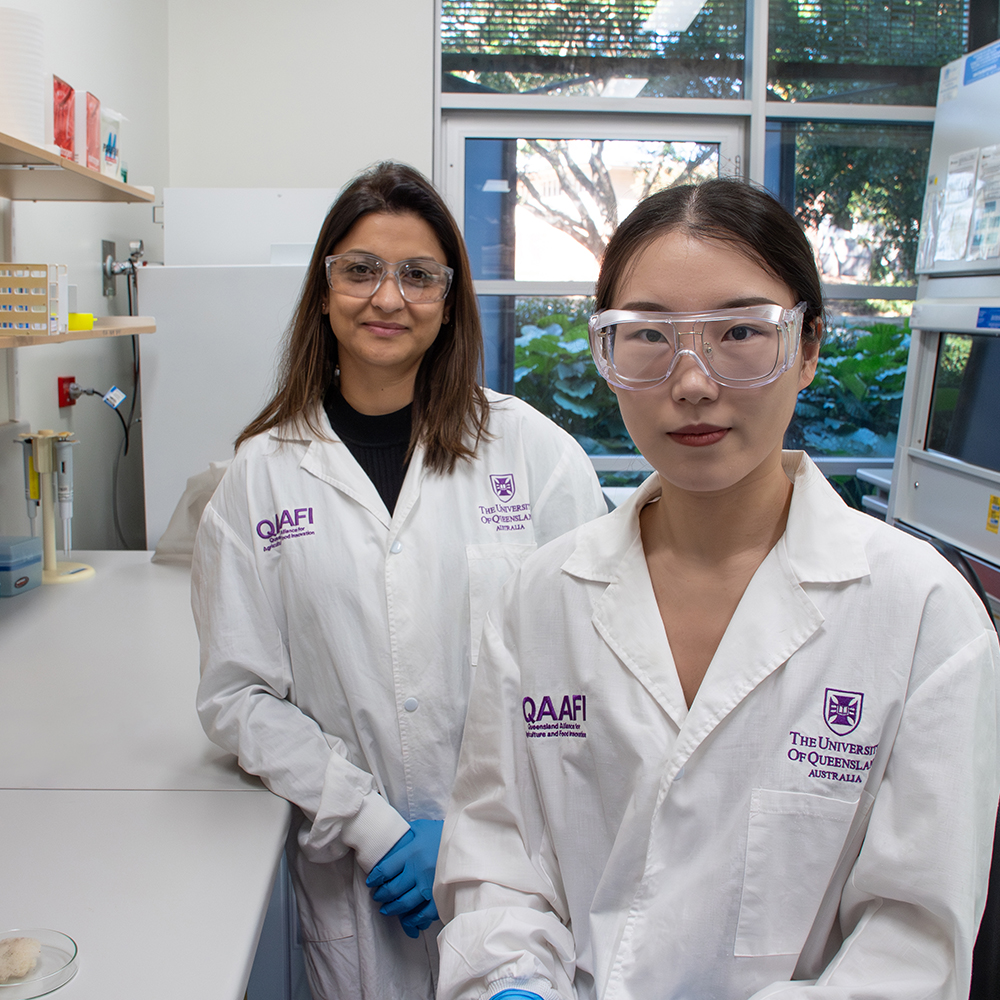A chemical-free method of controlling flystrike in sheep is a step closer, according to University of Queensland research.
Queensland Alliance for Agriculture and Food Innovation Research Fellow Dr Karishma Mody and PhD candidate Yunjia Yang are using the innovative RNA technology to combat sheep blowfly, a major disease and welfare issue for sheep.

“It costs nearly $280 million dollars a year in labour and chemical treatments to keep flystrike under control in Australia,” Dr Mody said.
“When introduced to the sheep blowfly diet, these sustainable double stranded RNA (dsRNA) molecules we’ve designed affect the way the insect grows.”
Dr Mody said the next challenge was to identify target genes that can be silenced by the dsRNA to slow insect growth and potentially kill the blowfly.
“Three of the 12 genes screened gave promising results,” she said.
“We have established that RNA inference (RNAi) has the potential to control pests which affect livestock by regulating the pest’s growth and development.
“The idea came through my work with Professor Neena Mitter who focuses on RNAi-based bio-insecticides to control crop pests and pathogens.
“Along with Professor Tim Mahony, we began to explore whether we can use the same approach for animal health.
However, Dr Mody said they had identified challenges which warrant further research.
“dsRNA can easily degrade because of the diet of sheep blowfly, so we are working on particle-based delivery platforms to help improve its stability for real world application,” she said.
“Australia is one of the world’s leading wool producers, so it’s fitting that we lead the way with innovative research to develop better control measures for pests.
“There’s also potential for this method to be used on other pest problems in livestock, including cattle ticks and buffalo fly in cattle.
“The other positive is that this proposed method is sustainable, non-toxic and has minimal associated resistance issues.”
The research was published in Pest Management Science.
The Advance Queensland Industry Research Fellowship project is funded by the Queensland Government, Department of Agriculture and Fisheries, The University of Queensland with support from industry partners.
Images are available via Dropbox.
Media: Dr Karishma Mody, k.mody@uq.edu.au; +61 423 623 152; QAAFI Media, Natalie MacGregor, n.macgregor@uq.edu.au, +61 409 135 651.
The Queensland Alliance for Agriculture and Food Innovation is a research institute at The University of Queensland supported by the Queensland Government via the Queensland Department of Agriculture and Fisheries.



